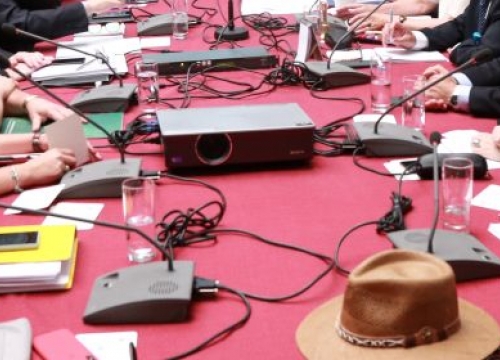New Research Brief Discusses the Role of National Human Rights Systems in Implementing International Human Rights Standards and Recommendations


Camara de Disputadas y Disputados Chile
25 June 2020
All domestic actors – whether governmental state actors, independent state institutions or civil society organizations – play multiple roles to ensure the implementation of international human rights standards and recommendations. In doing so, they cooperate with one another and establish diverse and country-specific strategies for human rights monitoring and implementation.
Our new Research Brief Beyond the 2020 Treaty Body Review: The Role of National Human Rights Systems discusses the approach, methodology and objectives of our new research project that aims at gaining a more comprehensive understanding of the strengths and weaknesses affecting different National Human Rights Systems (NHRSs).
A Timely Research
In light of the Treaty Body Review 2020 and related calls for increased stakeholder connectivity, it is important to understand whether the current international human rights system may benefit from improved coordination and leveraging of synergies at the national level.
‘As the United Nations (UN) Treaty Body Review 2020 draws towards its conclusion, it is time to focus on the domestic level and assess the role of national monitoring and implementation strategies’ explains Domenico Zipoli, Research Fellow at the Geneva Academy and author of the Research Brief.
Analysing a Wide Variety of NHRSs
Given the variety of NHRSs, the research aims to detect best practices that are most effective in both the monitoring and implementation of UN human rights recommendations. It does so by comparing existing national strategies within distinct NHRSs.
‘Collecting such data and best practices will greatly assist in determining the effectiveness of monitoring and follow-up mechanisms put in place by both UN and national human rights bodies’ underlines Domenico Zipoli.
Expected Outputs
The project’s outputs and results will be presented at the end of 2020.
‘Three main contributions can be expected at this point. Firstly, the strengths and weaknesses that will stem from each NHRS under analysis can inform other countries’ initiatives of domestic human rights institutionalization. Secondly, highlighted best practices may assist further efforts towards increased connectivity amongst domestic actors and UN human rights mechanisms. Lastly, a stronger focus on the national human rights ‘infrastructure’ may also be useful to inform the preparations of future treaty body and UN Human Rights Council review processes’ stresses Felix Kirchmeier, Executive Director of the Geneva Human Rights Platform and Manager of Policy Studies at the Geneva Academy.








